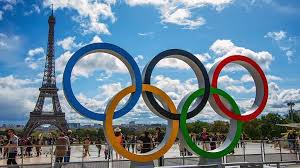Mali has been plunged into a financial scandal of unexpected proportions, calling into question the management of public funds allocated to the country’s participation in the Paris 2024 Olympic Games.
At the heart of the controversy that has rocked the sporting world over the management of the Paris Olympics is a dispute between Mali’s National Olympic and Sports Committee (CNOSM) and the Ministry of Youth and Sports over the amounts actually disbursed and how they were used.
The Ministry of Sports, headed by Abdoul Kassim Fomba, initially claimed to have given the CNOSM a total of 360 million CFA francs for Mali’s preparation for and participation in the Paris Games.
However, the CNOSM, through its treasurer general Abdoulaye Coulibaly, quickly refuted this claim, stating that only 93,921,633 FCFA had been allocated, barely 22 per cent of the planned budget.
This discrepancy quickly took on a political and media dimension, with accusations of mismanagement and withholding of funds by the ministry.
According to the CNOSM, an initial budget of 420 million CFA had been submitted to the Ministry of Sports, but the latter had only transferred a fraction of the funds requested.
The CNOSM made it clear that it was only managing a small part of the allocated funds and that it planned to return almost 12 million CFA to the Treasury if the football team qualified for the second phase of the tournament. The Ministry of Sport, for its part, said that the Olympic Committee had received sufficient funds to ensure the preparation and participation of the athletes.
This situation has raised questions about the destination of the remaining funds. The Office of the Auditor General of Mali and other control bodies are planning an in-depth audit of the accounts of the Ministry of Sports to shed light on this matter and determine whether any misappropriation of funds has taken place.
The poor performance of Malian athletes at the Olympics has already drawn criticism, and this affair is likely to deal a further blow to the international image of Malian sport.
For many observers, the scandal is symptomatic of a wider problem of transparency and resource management in government institutions.
Minister Abdoul Kassim Fomba stressed the importance of rigorous monitoring of public funds, saying that ‘no one can use their identity to refuse to account for public money’.
He called for more accountability and transparency in the management of funds allocated to sport.
While calls for an independent audit are growing, public opinion remains divided. Some support the actions of the Minister of Sport in trying to shed light on the missing funds, while others denounce the chaotic management within the ministry, pointing to delays in the transfer of funds and a lack of coordination with the CNOSM.
The CNOSM, for its part, defends itself by claiming to have demonstrated transparency by publishing details of its spending on the Games.
However, the committee will have to answer questions about the exact use of the 93 million CFA francs it received, as well as the planning of future major sporting events.
In the meantime, the Malian sporting community is holding its breath, hoping that an independent investigation will provide clear answers and help to restore the image of Malian sport internationally.
MD/ac/sf/lb/GIK/APA


